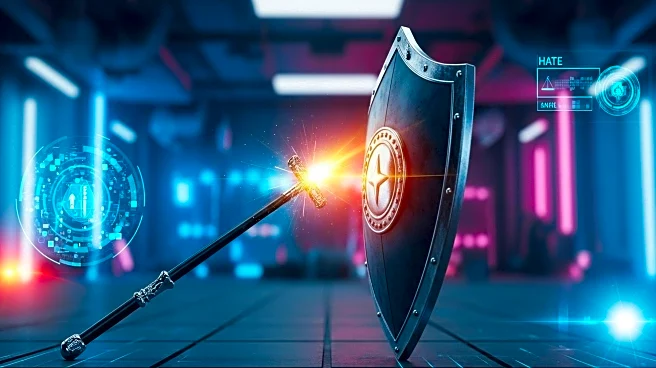What's Happening?
Disney, Warner Bros., and other entertainment companies have filed lawsuits against AI content companies MidJourney Inc. and Minimax, focusing on copyright infringement through the mass production of images and videos. These lawsuits emphasize the creation of infringing outputs rather than the use of copyrighted works for training AI models. The legal action represents a shift in strategy, targeting the outputs generated by AI tools, which mimic copyrighted material. This approach raises new legal questions about fair use and the liability of platforms for user-generated content.
Why It's Important?
The lawsuits highlight the evolving legal landscape surrounding AI and copyright law. By focusing on outputs, entertainment companies aim to protect their intellectual property from unauthorized reproduction by AI tools. This legal strategy could impact the development and use of AI technologies, influencing how companies approach AI training and output generation. The outcome of these cases may set precedents for future litigation, affecting industries reliant on AI for content creation and raising questions about the balance between innovation and intellectual property rights.
What's Next?
The legal proceedings will likely explore the boundaries of fair use and the responsibilities of AI developers in preventing copyright infringement. The cases may prompt AI companies to implement stricter controls on content generation and user prompts. As the lawsuits progress, stakeholders in the entertainment and tech industries will closely monitor the implications for AI development and copyright protection. The decisions could influence future regulations and industry standards for AI-generated content.












